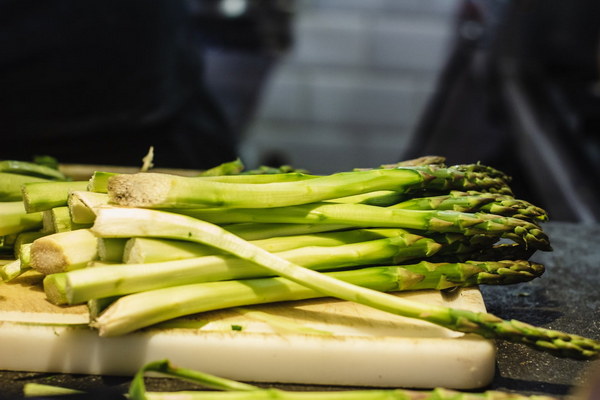Harmony of Nourishment and Regulation The Traditional Chinese Medicine Approach to Spleen and Stomach Health
In the realm of Traditional Chinese Medicine (TCM), the health of the spleen and stomach holds paramount importance. Central to TCM philosophy is the principle of first nourish, then regulate, a concept that emphasizes the importance of building a solid foundation for optimal health before addressing specific imbalances. This approach is particularly relevant when it comes to the spleen and stomach, which are integral to the body’s digestive and immune systems. Let's delve into the essence of this principle and its application in TCM.
The spleen and stomach are known as the King and Minister in TCM, with the spleen acting as the King responsible for transforming food into nutrients, and the stomach serving as the Minister that receives and breaks down these nutrients. Together, they play a crucial role in maintaining the body’s energy (Qi) and blood levels. When the spleen and stomach are functioning optimally, the body enjoys good health; however, when they are imbalanced, various health issues can arise.
The principle of first nourish, then regulate is rooted in the understanding that the body requires a strong foundation of nutrients and energy to support its self-healing mechanisms. This is where the emphasis on nourishment comes into play. TCM practitioners focus on strengthening the spleen and stomach through a variety of methods, including dietary adjustments, herbal remedies, and lifestyle changes.
Dietary adjustments are a cornerstone of TCM treatment for spleen and stomach health. A balanced diet that includes a variety of nutrient-rich foods, such as lean proteins, whole grains, vegetables, and fruits, is essential for nourishing the spleen and stomach. Foods that are known to strengthen the spleen and stomach include sweet potatoes, millet, carrots, and ginger. Additionally, TCM practitioners may recommend avoiding cold, raw, and difficult-to-digest foods that can weaken the spleen and stomach.
Herbal remedies are another key component of TCM treatment for spleen and stomach issues. TCM herbs are chosen based on their properties and how they interact with the body’s systems. For example, herbs like Atractylodes macrocephala, Astragalus membranaceus, and Poria cocos are often used to strengthen the spleen and stomach, as they help to promote digestion, improve absorption, and boost the body’s immune response.
In addition to dietary and herbal interventions, lifestyle changes play a crucial role in maintaining spleen and stomach health. Adequate rest, stress management, and regular physical activity are essential for supporting the body’s natural healing processes. TCM practitioners may also recommend specific exercises, such as tai chi or qigong, which help to balance the body’s energy and promote overall health.

Once the spleen and stomach have been sufficiently nourished and strengthened, the focus can shift to regulation. This stage of treatment aims to address specific imbalances and restore harmony to the body. Techniques such as acupuncture, moxibustion, and cupping may be employed to stimulate the body’s self-healing mechanisms and correct any underlying imbalances.
In conclusion, the principle of first nourish, then regulate is a fundamental aspect of Traditional Chinese Medicine’s approach to spleen and stomach health. By focusing on building a strong foundation of nutrients and energy, TCM practitioners can help their patients achieve long-lasting health and well-being. Through a combination of dietary adjustments, herbal remedies, and lifestyle changes, TCM offers a holistic approach to addressing the complex interplay between the spleen and stomach, ensuring that the body’s systems work in harmony.









